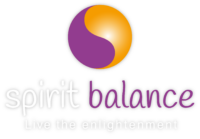In the Czech Republic, ‚Dark Therapy‘ as it is known there has become incredibly popular in recent years. By all accounts there are at least 15 providers of Darkness Retreats in some shape or form, ranging from a relatively basic hut on someone’s private property, to more specialist and sophisticated clinics, some of which have been featured on this blog.
Word got around that a prolonged stay in darkness could be highly beneficial, and as such many of the facilities are booked up for months in advance. In 2014, news of this phenomena caught the attention of Czech television company ‚Česká televize‘, who decided to send one of their reporters, Silvie Dymáková, to do a Darkness Retreat for herself, and record it all using a thermographic camera.
The video below starts on Silvie’s third day, because she pretty much slept for most of the first two. This is common for most Darkness Retreat participants. It is in Czech with English subtitles. (See video summary below)
To begin with, the programme introduces some of the history behind times spent in the dark, including where it all started in Tibet, when monks would spend up to 7 weeks in complete isolation and silence in darkness, to promote self-discovery and spiritual growth, as well as to prepare for their journey to the next world.
Dr. Andrew Urbiš then speaks about some of the physical benefits people might experience – he was the person who introduced this practice to the Czech Republic. It was with him, at his clinic in Celadna – the Beskydské Rehabilitation Center – that Silvie did her 7 day retreat. It begins with a series of tests to assess her mental wellbeing and exhaustion levels, which show her to be highly stressed.
The documentary highlights that it is important to be fully committed to your Darkness Retreat and to go into it with the intention to get the most from your stay, otherwise it can feel like you are a prisoner, and may not be a positive or beneficial experience.
Before Silvie’s retreat formally begins, she is shown all of the facilities with the light on, so that she can acquaint herself with where everything is and how it all works with regards to food, personal hygiene, daily support from Dr. Urbiš, what to do in an emergency etc.
Having spent most of the first 2 days sleeping, Silvie has lost any real sense of time, especially as her food is being brought at random times throughout her stay. By the third day, the darkness is starting its ‚repair‘ and Silvie is beginning to experience lucid dreaming, and has stopped perceiving reality. It gives her a bit of a wobble, because she’s uncertain if what is happening is real or imagined, so feels a bit scary.
As her time in the darkness increases, Silvie starts to sense the presence of other beings in her room, though after a while this begins to feel the darkness getting friendlier, although still thinks she is not alone. Her subconscious is doing its work, giving her flashbacks from childhood,plus she is experiencing light phenomena, that is also quite common. Once she gets through the initial crisis of anxiety, she then feels like her stay in darkness is the best form of regeneration, which can awaken creativity and be a huge source of energy.
At the end of her ‚Week in the darkness‘,Silvie is most looking forward to the sun, music and seeing the people she loves, as well as to having the best pasta in the world. She leaves her room at dawn, for a gentle reintroduction to the light. Many people have a highly emotional reaction to seeing the light again, and Silvie is no exception.
At the end, she says she has more energy, feels calmer and her digestion is better. Her dreams remain in her memory, as vivid as ever, but she’s still not sure if they were real or imagined…
Silvie later received the Czech Lion Award for Best Documentary Feature for this programme.
